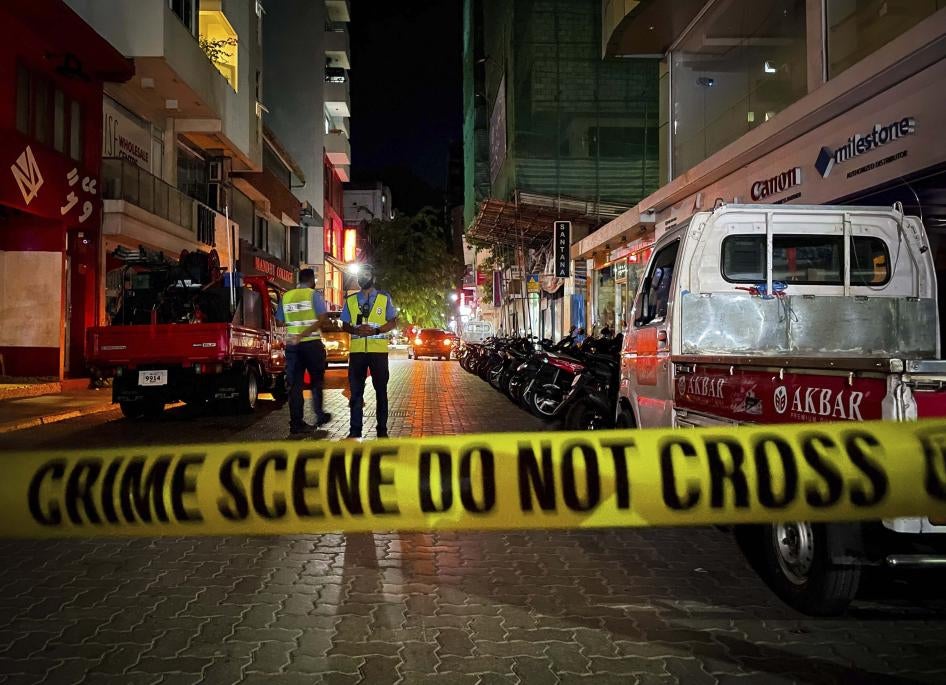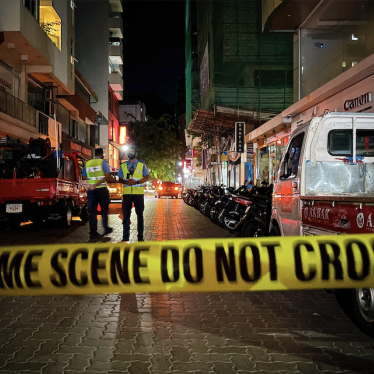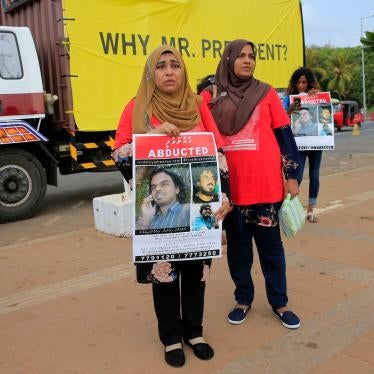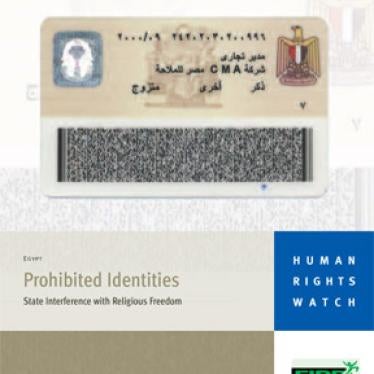(New York) – The Maldives authorities during 2021 failed to adequately address threats and violence by extremist Islamist groups against politicians, journalists, and activists, Human Rights Watch said today in its World Report 2022. Despite some advances in media freedom under President Ibrahim Mohamed Solih, the government threatened to impose new restrictions and employed abusive laws limiting freedom of assembly to quell protests.
“The Maldives government’s failure to adequately investigate and prosecute extremist group attacks has highlighted entrenched weaknesses within the justice system,” said Patricia Gossman, associate Asia director at Human Rights Watch. “In 2022, the Maldives government should prioritize efforts to reform the judiciary and curb endemic corruption.”
In the 752-page World Report 2022, its 32nd edition, Human Rights Watch reviews human rights practices in nearly 100 countries. Executive Director Kenneth Roth challenges the conventional wisdom that autocracy is ascendent. In country after country, large numbers of people have recently taken to the streets, even at the risk of being arrested or shot, showing that the appeal of democracy remains strong. Meanwhile, autocrats are finding it more difficult to manipulate elections in their favor. Still, he says, democratic leaders must do a better job of meeting national and global challenges and of making sure that democracy delivers on its promised dividends.
Although President Solih vowed to protect media freedom, his government presented a bill to parliament that would require journalists to reveal their sources. Parliament has not yet voted on the bill. The government also invoked regulations related to the Covid-19 pandemic to prevent protests over government inaction in prosecuting cases of sexual assault.
The attempted assassination on May 6, 2021, of Mohamed Nasheed, the former Maldives president and current speaker of parliament, highlighted the grave risks posed by extremist groups that have political protection.
A Solih government-appointed commission to investigate deaths and enforced disappearances under previous administrations made no significant progress including in emblematic cases like that of a journalist, Ahmed Rilwan, who disappeared in 2014, and a blogger, Yamin Rasheed, who was killed in 2017. The authorities stalled prosecutions in other cases the commission investigated.
While the Maldives made progress on its efforts against human trafficking – graduating to Tier 2 on the US State Department’s Trafficking in Persons report in 2021 – the government failed to put in place adequate measures to identify and support trafficking victims, or investigate and prosecute abusers.
The Maldives is among the countries most vulnerable to climate change, and the government has spoken out on the need for global action. Yet at home, the government has not adequately consulted local communities or carried out sufficient measures to adapt to the growing risk of floods and erosion that threaten long-term harm to communities.







